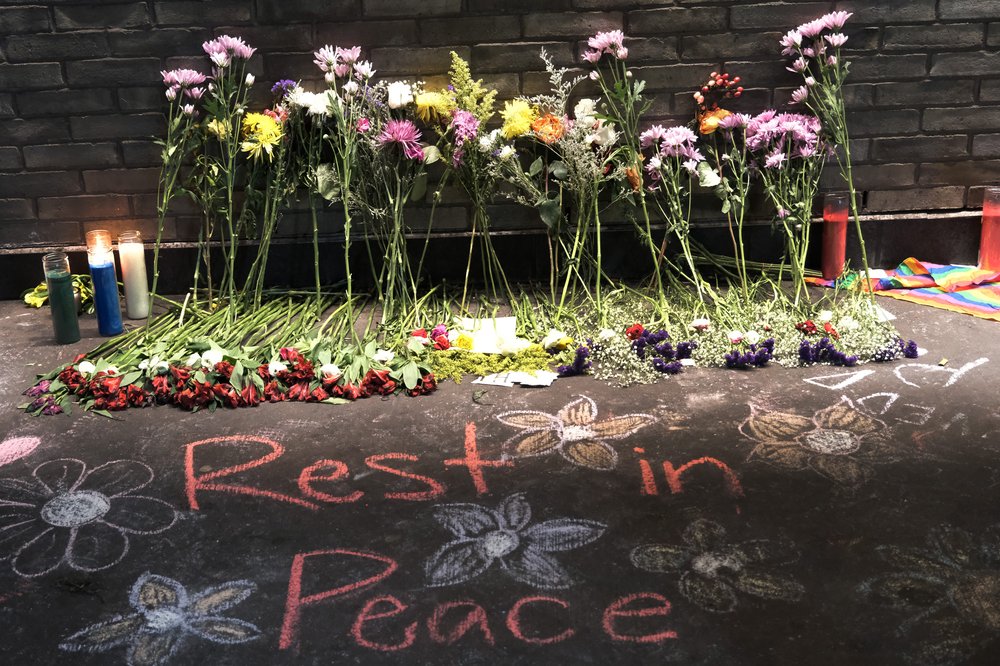In NYC, cheers and jeers greet the verdict of the Daniel Penny subway chokehold case
Dec. 9, 2024, 6:13 p.m.
While many applauded the jury's acquittal, some advocates worry about the repercussions on homeless people and those with mental illness.

Chantel Martin, an East New York resident getting off the subway at the Utica A/C stop Monday, said she was in disbelief after hearing that a jury had found Daniel Penny not guilty of criminally negligent homicide in the death of Jordan Neely on an F train last May.
“I just have no hope in the judicial system,” she said.
During the trial, which has unfolded over the past several weeks, a medical examiner testified that Penny, a former Marine, killed Neely by putting him in a six-minute-long chokehold. But his defense argued that other factors could have contributed to his death and emphasized that Penny was trying to protect his fellow commuters after Neely, who was homeless and had schizophrenia, had an outburst on the train. Last week, the judge in the case dismissed a charge of manslaughter after jurors said they couldn't reach a verdict on that count.
Martin said she thinks Penny could have handled the situation differently.
“I've been taking the subway my whole life and I've been around mentally ill people,” she said. “I know how to remove myself from the situation.”
Some New Yorkers, including advocates for the homeless and people with mental illness, echoed Martin’s disappointment in the justice system, while others celebrated the verdict. Reactions online showed New Yorkers remain divided on the Penny case. From the beginning, some have protested Penny’s actions, while others have championed his innocence, including with their dollars, donating millions to his legal defense. Some said he shouldn’t have been subject to charges in the first place, or described the verdict as common sense.
“Thankfully, the jury rightfully decided to acquit Daniel Penny,” Curtis Sliwa, a community activist and former Republican mayoral candidate, posted on X Monday evening. “Justice has prevailed.”
Meanwhile, some advocates said the lack of a conviction opened the door for other homeless people to get hurt because it suggests attackers can act with impunity. Others said it was an example of the justice system not working for Black people. Neely was Black and Penny is white.
“This is just a continuous failure to recognize Jordan Neely as a human being,” said Neil Berry, a community advocate with Vocal NY, who has been homeless himself. The organization focuses on advocacy for low-income people. “This decision sets the stage for this to happen again: for more homeless people, or even just loud kids, to be shot or killed because they are perceived to be potential threats.”
Berry also went on to call out Mayor Eric Adams and Gov. Kathy Hochul, who he said created “a level of pessimism and fear that fosters vigilante justice.” Both the mayor and governor have linked subway safety with homelessness and mental health issues.
David Giffen, executive director of Coalition for the Homeless, also worried about the precedent the verdict sets for potential violence against people who are homeless or mentally ill.
“There are people in the city who need care, who need housing, who are not getting care, who are not getting housing,” Giffen said. “And if the answer to this is that it's open season on anybody who is in crisis, then our city has sunk to a level of inhumanity that I find appalling.”
In its own statement online, the NAACP said the verdict “has effectively given license for vigilante justice to be waged on the Black community without consequence” and was an example of the “inequities in our justice system.”
Jury finds Daniel Penny not guilty in NYC subway chokehold case Judge dismisses manslaughter charge against Daniel Penny in subway chokehold trial Daniel Penny, charged with killing Jordan Neely, is gaining prayers, millions in donor dollars. Big names are helping. Jordan Neely's death in the subway evokes talk of another time in NY